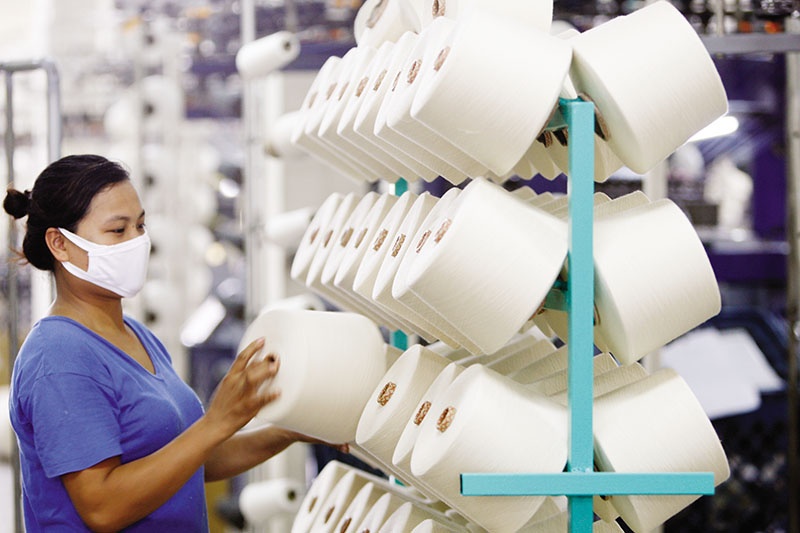Backlogs of work surge amid restrictions on production volumes
 |
| Manufacturing operations have deteriorated further in September |
The IHS Markit Vietnam Manufacturing Purchasing Managers' Index (PMI) remained at 40.2 in September, signalling further marked deterioration in business conditions across the sector. Temporary business closures, transportation difficulties, and staff shortages all contributed to a fourth successive reduction in manufacturing output in Vietnam, and one that remained considerable.
New orders also fell sharply and to the greatest extent since April 2020. Alongside a sharp reduction in domestic new business, firms pointed to a much sharper reduction in new export orders than that seen during August.
Employment levels decreased at the sharpest pace since the survey began in March 2011. Some panellists reported that employees had resigned due to a lack of work while others scaled back staffing levels amid pauses in production.
The sustained period of restrictions on output and sharply falling staffing levels led to a surge in backlogs of work. Outstanding business rose for the first time in four months, and at a pace that was by far the strongest in the survey's history.
As well as lowering staffing levels, manufacturers also reduced their purchasing activity in response to lower production requirements. Meanwhile, supply-chain delays intensified, with lead times lengthening at a new record pace for the third consecutive month.
Issues with the supply of raw materials contributed to further upward pressure on purchase prices, while there were widespread reports of higher transportation costs. As a result, input prices continued to rise sharply, with the rate of inflation slightly faster than in August. On the other hand, selling prices rose only slightly, and at the weakest pace since June. Firms indicated that weak demand meant they offered discounts in order to try to secure sales.
Restricted production volumes impacted inventory holdings. Inventories of purchases rose as inputs were kept in stock rather than being used in production. In turn, falling output meant that stocks of finished goods continued to decrease. Firms generally expect output to recover over the coming year, with production set to start rising during the final quarter of 2021 should the pandemic be brought under control and restrictions lifted. Business sentiment picked up from the 15-month low seen in August, but remained relatively muted.
What the stars mean:
★ Poor ★ ★ Promising ★★★ Good ★★★★ Very good ★★★★★ Exceptional
 Tag:
Tag:
Related Contents
Latest News
More News
- VNPAY and NAPAS deepen cooperation on digital payments (February 11, 2026 | 18:21)
- Vietnam financial markets on the rise amid tailwinds (February 11, 2026 | 11:41)
- New tax incentives to benefit startups and SMEs (February 09, 2026 | 17:27)
- VIFC launches aviation finance hub to tap regional market growth (February 06, 2026 | 13:27)
- Vietnam records solid FDI performance in January (February 05, 2026 | 17:11)
- Manufacturing growth remains solid in early 2026 (February 02, 2026 | 15:28)
- EU and Vietnam elevate relations to a comprehensive strategic partnership (January 29, 2026 | 15:22)
- Vietnam to lead trade growth in ASEAN (January 29, 2026 | 15:08)
- Japanese business outlook in Vietnam turns more optimistic (January 28, 2026 | 09:54)
- Foreign leaders extend congratulations to Party General Secretary To Lam (January 25, 2026 | 10:01)





















 Mobile Version
Mobile Version